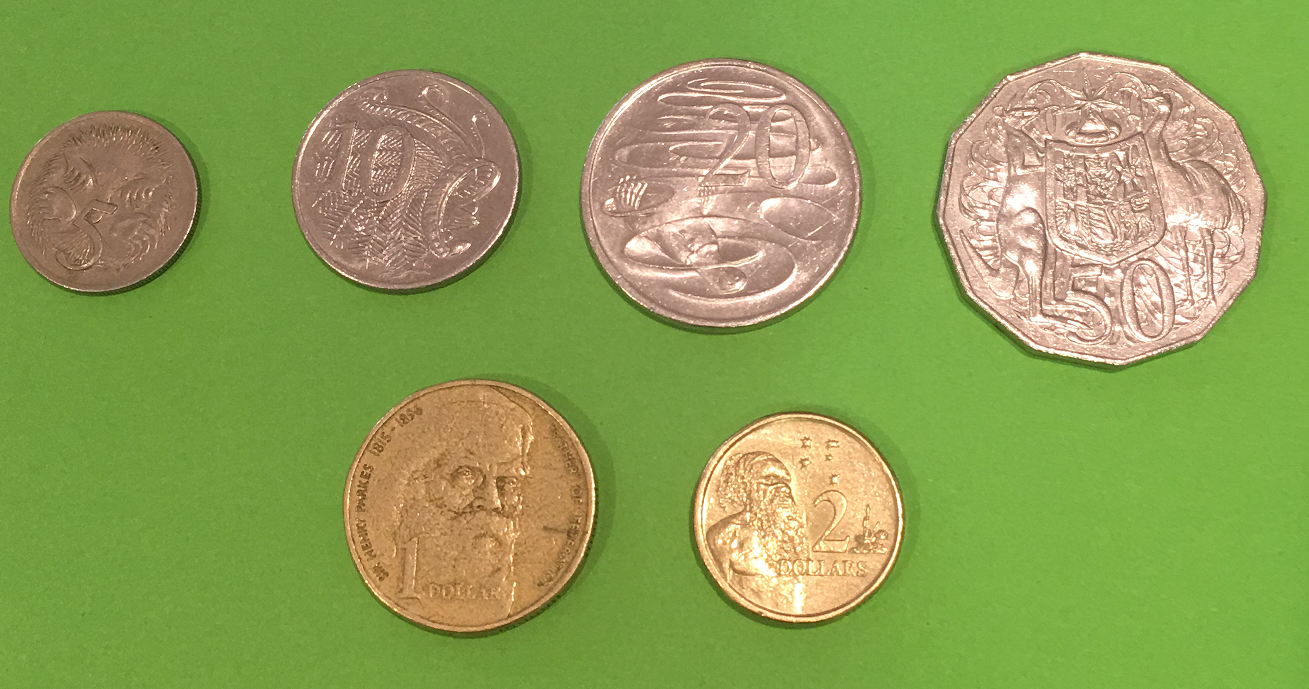Prekinder to Grade 2 Mathematics
Different Types of Numbers
Different Types of Numbers
Cardinal numbers are counting numbers. Ordinal numbers tell us about position. Nominal numbers are just names: they don't have any value or position.
Cardinal numbers
The cardinal numbers are the counting numbers. They are whole numbers that tell you how many of something there are. So, they don't include fractions or decimals. For example, you would use a cardinal number to describe the number of brussels sprouts that are on your plate at the start of dinner (hopefully, \(0\)!). In the picture below, there are six coins. Six is a cardinal number.

Ordinal Numbers
How do we describe the position of something in a race, a line or a list? Using an ordinal number. Ordinal numbers tell us about position. They are things like 1st (or first), 2nd(or second), 3rd (or third) 4th (or fourth), 5th (or fifth) and 6th (or sixth), etc. For example, the snails in the picture below are having a race.

Nominal Numbers
These are just numbers that are used as names. For example, the car in the picture below is given the number \(453\) as a name. This name tells us nothing about how many cars there are or the position of the car in a race.

- The number on a cricketer's shirt. Nathan Lyon wore shirt number 67 in 2016.
- A post code: Melbourne's post code is 3000.
- A lego set number such as 75192.
Description
This mini book covers the core of Math for Foundation, Grade 1 and Grade 2 mathematics including
- Numbers
- Addition
- Subtraction
- Division
- Algebra
- Geometry
- Data
- Estimation
- Probability/Chance
- Measurement
- Time
- Money
- and much more
This material is provided free of cost for Parent looking for some tricks for their Prekinder, Kinder, Prep, Year 1 and Year 2 children
Audience
Grade 1/Year 1, Grade 2/Year 2, Prep, Foundation, Kinder and Pre-Kinder
Learning Objectives
These lessons are for kids aged 4-8 with the core objective to expose their brains to concepts of addition, subtraction, division, algebra and much more.
Author: Subject Coach
Added on: 6th Apr 2018
You must be logged in as Student to ask a Question.
None just yet!